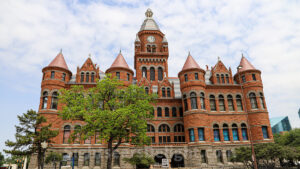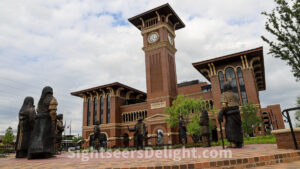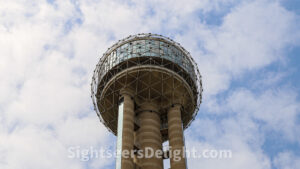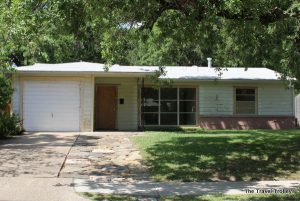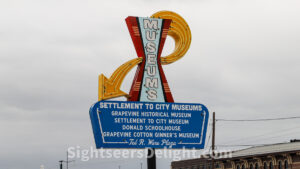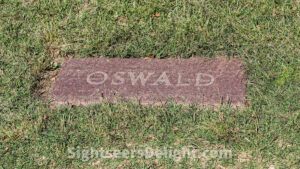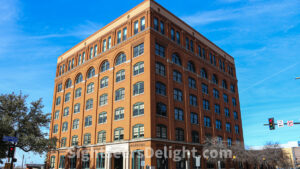76011
Sometimes it feels like the history of Dallas centers on the 1963 assassination of President John F. Kennedy. Contrary to prevailing opinion, it does not. Any visitor to Dallas looking to explore more of the city’s history should begin at the Old Red Museum of Dallas County History & Culture near Dealey Plaza in the heart of downtown Dallas. The museum, located in the historic 1892 Dallas County Courthouse, explores the fascinating history of Dallas, how the city grew into the major metropolis it is today and some of the cultural conflicts along the way.
75202
“Peace Circle” interprets the 1843 meeting between Republic of Texas President Sam Houston and 10 American Indian chiefs and captains on the Grape Vine Prairie. The monument features 11 bronze statues standing 1.25 percent larger than life size. The Peace Circle meeting later led to the Treaty at Bird’s Fort signing on September 29, 1843.
76051
Pioneer Park Cemetery consists of graveyards containing the remains of several of the Dallas’ earliest founders, including mayors, business leaders and heroes of the Texas revolution. Located in the Dallas’ Convention Center District and east of Pioneer Plaza, the cemetery dates to the 1850s and remained in use until the 1920s.
75201
Created in 1994, Pioneer Plaza is the largest public open space in the Dallas central business district. The park is home to the Cattle Drive Through Dallas sculpture. The giant bronze sculpture commemorates (as its name suggests) a cattle drive through the city.
75202
The 561-foot-tall Reunion Tower is one of the recognizable landmarks in Dallas. Part of the Hyatt Regency Hotel complex, Reunion Tower is the 15th tallest building in Dallas and located about 1,000 feet from Dealey Plaza where President John F. Kennedy was killed in 1963. Known locally as “The Ball,” the tower was completed on Feb. 2, 1978.
75207
The Ruth Paine House Museum opened on November 6, 2013. The city of Irving purchased Ruth Paine’s small suburban home in 2009 to preserve the home’s history surrounding the tragedy. Half a century later, the historic home was restored to its 1963 look and transformed into a multimedia museum to interpret what happened in November 1963. On November 21, 1963, Lee Harvey Oswald went to the house for an overnight visit with his wife and kids, who had been living with Paine. This was unusual as Oswald usually visited on the weekends. Video images projected onto glass panes depict actors re-creating certain moments, such as when Paine was shocked to hear Marina tell a police officer that her husband owned a gun. Paine lived in the house until 1966 and now resides in California.
75060
The Settlement to City Museums is a collection of four museums that tell the story of Grapevine. They are the Keeling House Museum, the Donald Schoolhouse, the Cotton Ginners Museum and the Grapevine Historical Museum located in the Grapevine Ice House.
Shannon Rose Hill Memorial Park is famous as the final resting place of Lee Harvey Oswald, the man who allegedly killed President John F. Kennedy. Oswald, 24 years old at the time of his death, ended up here because no other funeral home wanted his body. Within months of his burial, thousands of visitors stopped by his grave to catch a glimpse of the final resting place of the alleged presidential assassin.
76112
Originally opened in 1989, the museum, tells not only the story of Kennedy’s assassination and the aftermath of his death, but puts into context Kennedy’s visit to Dallas, which was in essence the first stop of his 1964 re-election campaign. The most powerful scene in the museum is arguably the reconstructed sniper’s perch. According to the Warren Commission, Oswald organized boxes containing schoolbooks into the perch; the museum based its reconstruction on photographs taken on Nov. 22, 1963.
75202

